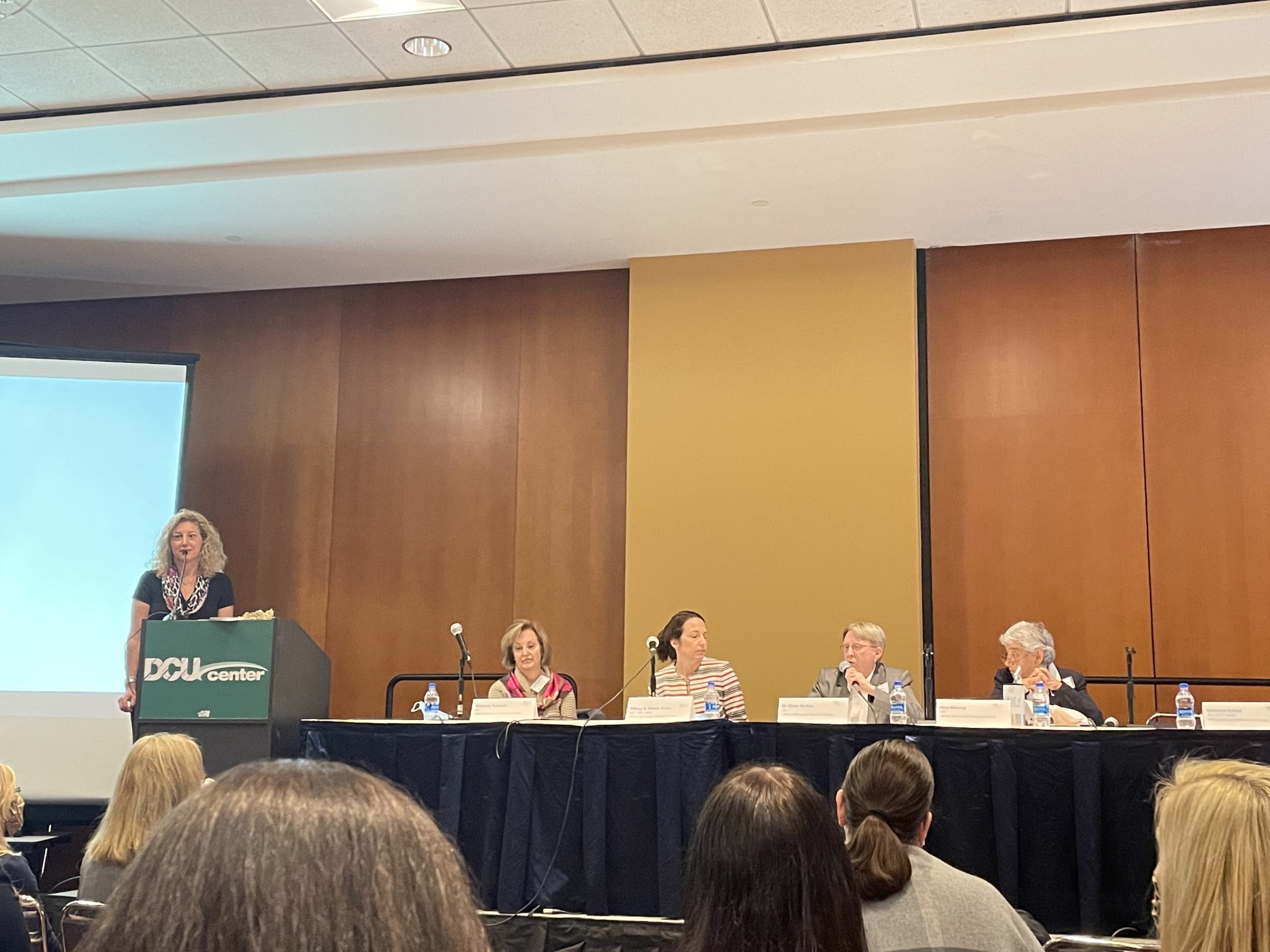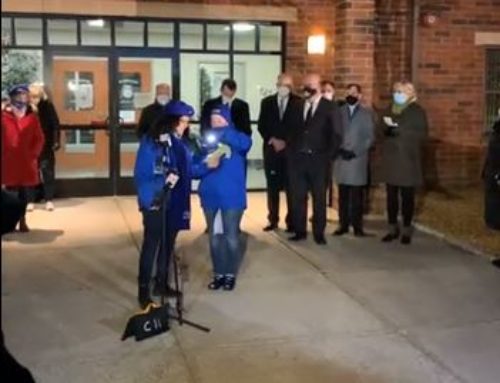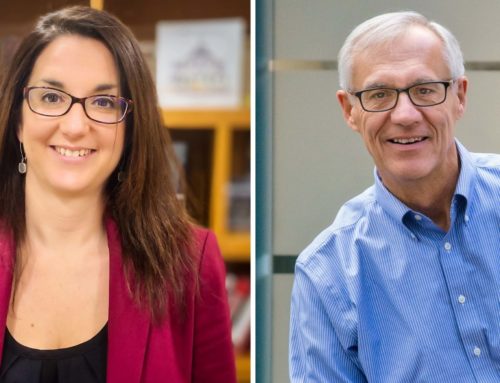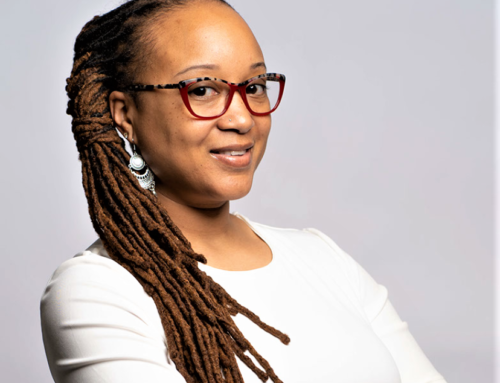Worcester—A panel of doctors leading in their fields spoke on authority, leadership and providing direction during the pandemic at a breakout session titled “Leading through Lemons: How to Support and Inspire When the Going Gets Tough” at the Women’s Leadership Conference
The panel was led by Dr. Shlomit Schaal, a professor and chair of the department of ophthalmology and visual sciences at UMass Memorial Medical Center and the University of Massachusetts Medical School.
Participants on the “Leading through Lemons” panel includel Dr. Kimberly Yonkers, chief for the Yale New Haven Health Division of Psychological Medicine and professor of psychiatry at the Yale School of Medicine; Dr. Tiffany Moore Simas, who practices obstetrics and gynecology in affiliation with UMass Memorial Health Care; Dr. Diane McKee, the chair of the department of family medicine and community health at UMass Memorial Medical Center; and Dr. Mary Maloney, a dermatologist and Mohs surgeon affiliated with UMass Memorial Health Care in Worcester and Leominster.
“We really had to communicate. We had to educate people…We very quickly had to revert to a whole host of ways to support our caregivers,” Yonkers said. “We had to make sure people started feeling safe.”
Throughout the pandemic, health care professionals have continued to provide care for not only people affected by Covid-19 but also other staff members and themselves.
“Every decision that we were making had rippling effects,” Moore Simas said. “The scope of communication had to become very purposeful about who I was talking to about what…I was really a leader in the community.”
The organizations that the women work with started to host town halls. McKee said this was one of the most important aspects of communication at the onset of the pandemic, especially since information was rapidly changing. The public would have information readily available and everything would be streamlined quickly.
“The town hall was a place where we could say what are we doing about this or I’m worried about that,” McKee said. “I also had to learn to say ‘I don’t know.’ Sometimes nobody knows yet, and sometimes ‘I don’t know but I’ll find out.’”
Moore Simas said that with the pandemic seemingly changing at its onset “hour by hour,” communication with teams and the public was essential to make sure everyone was on the same page. It was also important though to say that “this is what we know now.”
Even still, these women were leaders during a pandemic. They said, however, that the term “leadership” looked a bit different.
Leaders must be more caring during the pandemic, Schaal said. In her department, someone was shown appreciation each week. McKee added that the uncertainty and rapid pace of change made it even more important to meet the needs of the people assisting urgent care patients.
“There’s a lot of loss. There’s a lot of grief. There’s a lot of personal sense of risk,” McKee said. “We needed to show appreciation and empathy, and we did that in a number of ways.”
McKee mentioned that the community support was also integral to the medical force’s work during the pandemic.
“No one knew how to dance,” Yonkers said. “We all were forced to look inside ourselves. We had to be flexible. We had to be innovative…There was no playbook for this.”
With so many open positions too, McKee said that people from across the entire workforce were stepping in. Beyond the hospitals and medical care centers, though, people donated masks or other PPE. Support from the community came in other ways as well. Some wrote letters and drew pictures. Others bought employees coffee or meals.
“It really was constantly reminding people how much their work mattered,” McKee said. “It was making people feel that what you do really matters.”
This meant that the workforce also celebrated, even the small things, such as the first antibody treatment.
Yet, the leadership panel recognized that it was important to show they were also in the unknown, working in a time of uncertainty. McKee said that everyone was stressed and working long hours, but they all were doing “the best they could.”
“In a time of fear, we have to acknowledge our own fear, but we have to be visible,” Maloney said. “I realized that people took a real sense of security in realizing I was in the office. I was available.”
Moore Simas agreed with Maloney, adding that the acknowledgement aspect made the leaders more “human.”
“You can be superwomen, but it’s ok to show that you’re struggling too,” Moore Simas said.
Maloney noted how women “turned into a camp counselor” because they were cooking more meals, doing more cleaning, doing arts and crafts, and so much more than before. Women’s roles became even more all encompassing, as Maloney said “traditional roles reasserted themselves.”
Yet, this is why the women noted that the way people work and lead may forever be changed. Maloney and Moore Simas said they made sure everyone had the ability to do at least some of their work from home with telehealth. Yonkers said that education for all providers was also important.
“We needed to have support systems we hadn’t had in the past,” Maloney said. “Burn out became real…We needed to recognize that, offer support, and get people back in the game.”






Leave A Comment